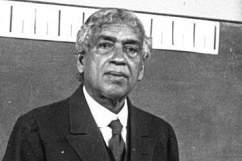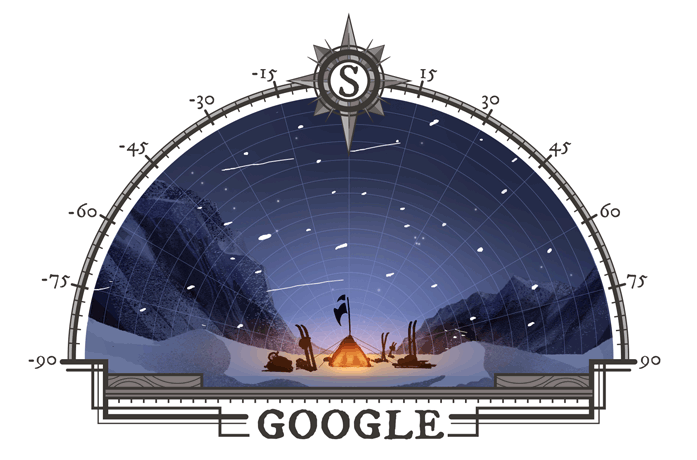
(Google)
The 105th anniversary of the first successful expedition to the South Pole is being celebrated with a Google Doodle on December 14, 2016.
The expedition was led by Norwegian explorer Roald Amundsen, who led 19 men and 100 dogs on a three-month journey in the dangerous Antarctic from October 1911 to December 1911.
“Today marks the 105th anniversary of Roald Amundsen’s expedition to the South Pole. Known as ‘the last of the Vikings,’ Amundsen was a lifelong adventurer with a gift for organization and planning,” Google says. “‘Victory awaits him who has everything in order,'” wrote Amundsen, and his South Pole journey was a perfect illustration of that principle.
“In honor of that achievement, today’s Doodle depicts the crew at the finish line, taking a moment to bask in the glory while the Antarctic wind whips outside their tent,” Google says.
Here’s what you need to know:
1. Roald Amundsen Secretly Set Out for the South Pole After Being Beat to the North Pole
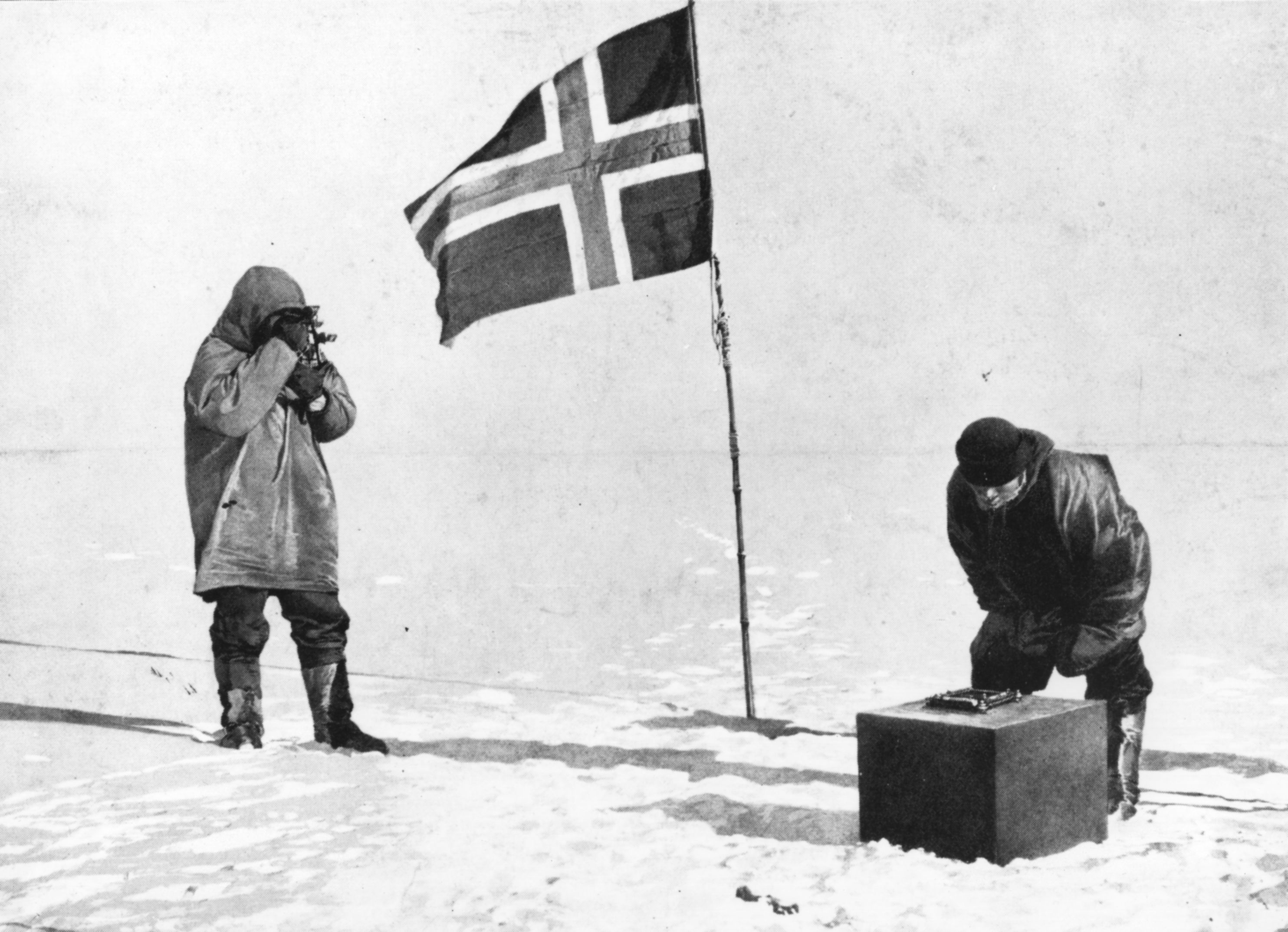
Norwegian explorer Captain Roald Amundsen taking sights at the South Pole, beside the Norwegian flag. (Illustrated London News/Getty)
Roald Amundsen did not tell the world his true plans when he set out in 1910 for the arctic, according to Wired. Amundsen had initially been planning a voyage to be the first to the North Pole, but was beaten there by two Americans, Frederik Cook and Robert Peary, so he turned his sights to the last untouched frontier, the South Pole.
Amundsen and his team departed for the Arctic in August 1910 in what was billed as a scientific exploration. But after his ship, the Fram, reached Madeira Island, Amundsen informed his crew they would actually be racing to the South Pole.
“It is my intention to sail Southwards, land a party on the Southern continent and try to reach the South Pole,” Amundsen said.
One of his lieutenants, Hjalmar Fredrik Gjertsen wrote, “Most (of the crew) stood there with mouths agape staring at the Chief like so many question marks.”
2. He Was Racing Against a British Team Led by Robert Falcon Scott, Who Tragically Died on the Return Journey From the South Pole
Amundsen and his team beat a British expedition led by Robert Falcon Scott by 35 days, according to Wired magazine. Scott was the first to set out for the South Pole, announcing his intention to make the expedition in 1909.
While Amundsen’s main goal was reaching the South Pole first, Scott and his team spent time completing scientific studies at the Antarctic, putting them at a disadvantage.
Scott and his team reached the South Pole to find Norwegian flags already there marking the victory for Amundsen. Tragically, Scott and his four fellow explorers died on the return trip.
3. Amundsen Used Dogs & Better Technology to Reach the South Pole in 3 Months
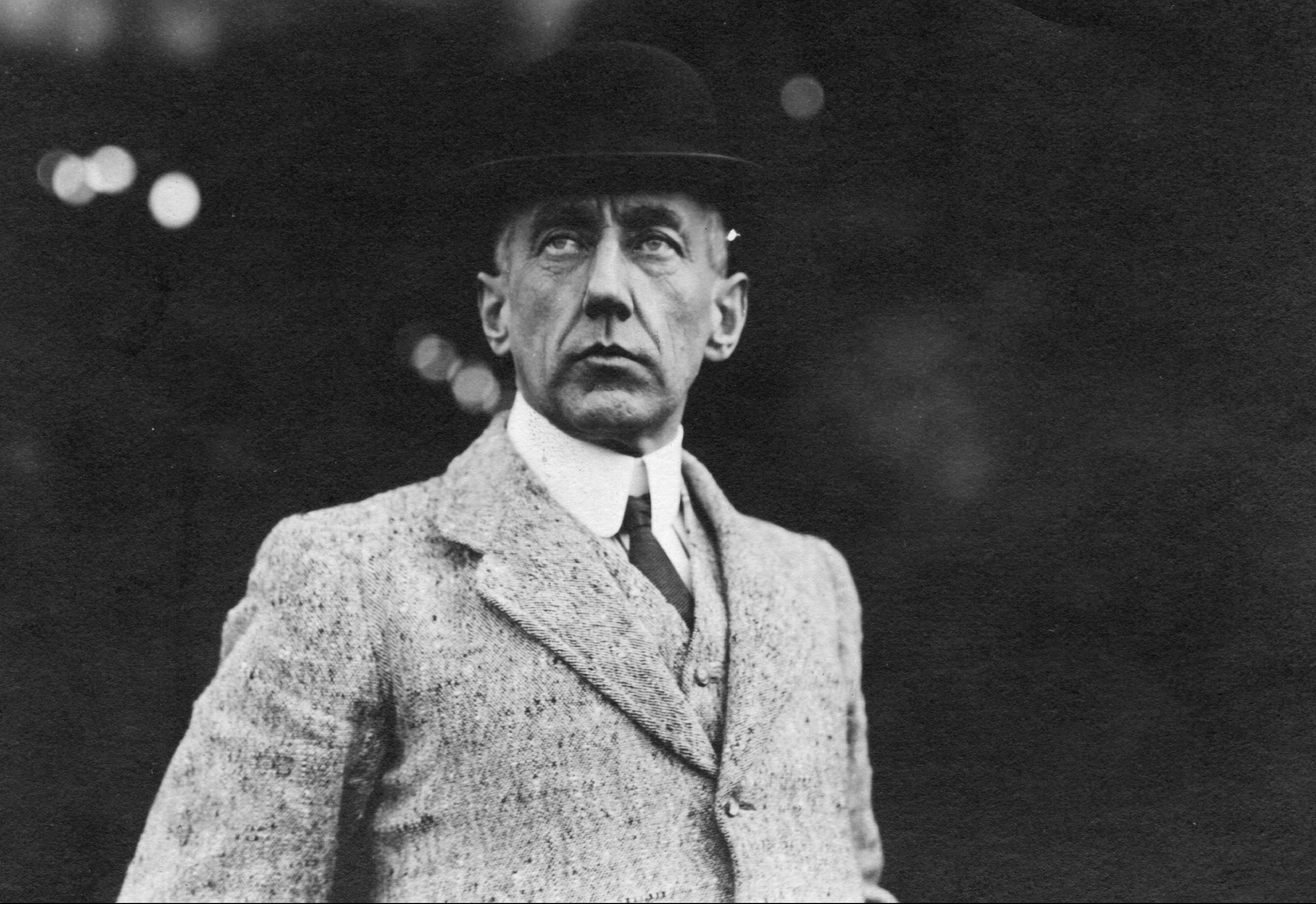
The Norwegian Polar explorer Roald Amundsen in a photo taken about 1910. (Hulton Archive/Getty)
Amundsen had other advantages other than focusing on speed over science, according to Scientific American. He used dogs to lead his team’s sleds, which the British explorers had an aversion to.
Amundsen also was known as a precise planner, and found better technologies, including faster sleds and skis and stronger ski boots and tents.
He also focused on nutrition and health, keeping his team stronger and able to move faster.
4. Amundsen & His Men Smoked Victory Cigars, & Left Behind a Note for Scott After Reaching the Pole
Amundsen and his men celebrated with victory cigars and a festival dinner after reaching the South Pole on December 14, 1911, according to South-Pole.com.
The team also left behind a tent with a note for Scott, who would arrive 35 days later.
5. The Scientific Base at the South Pole Is Now Named for Amundsen & Scott
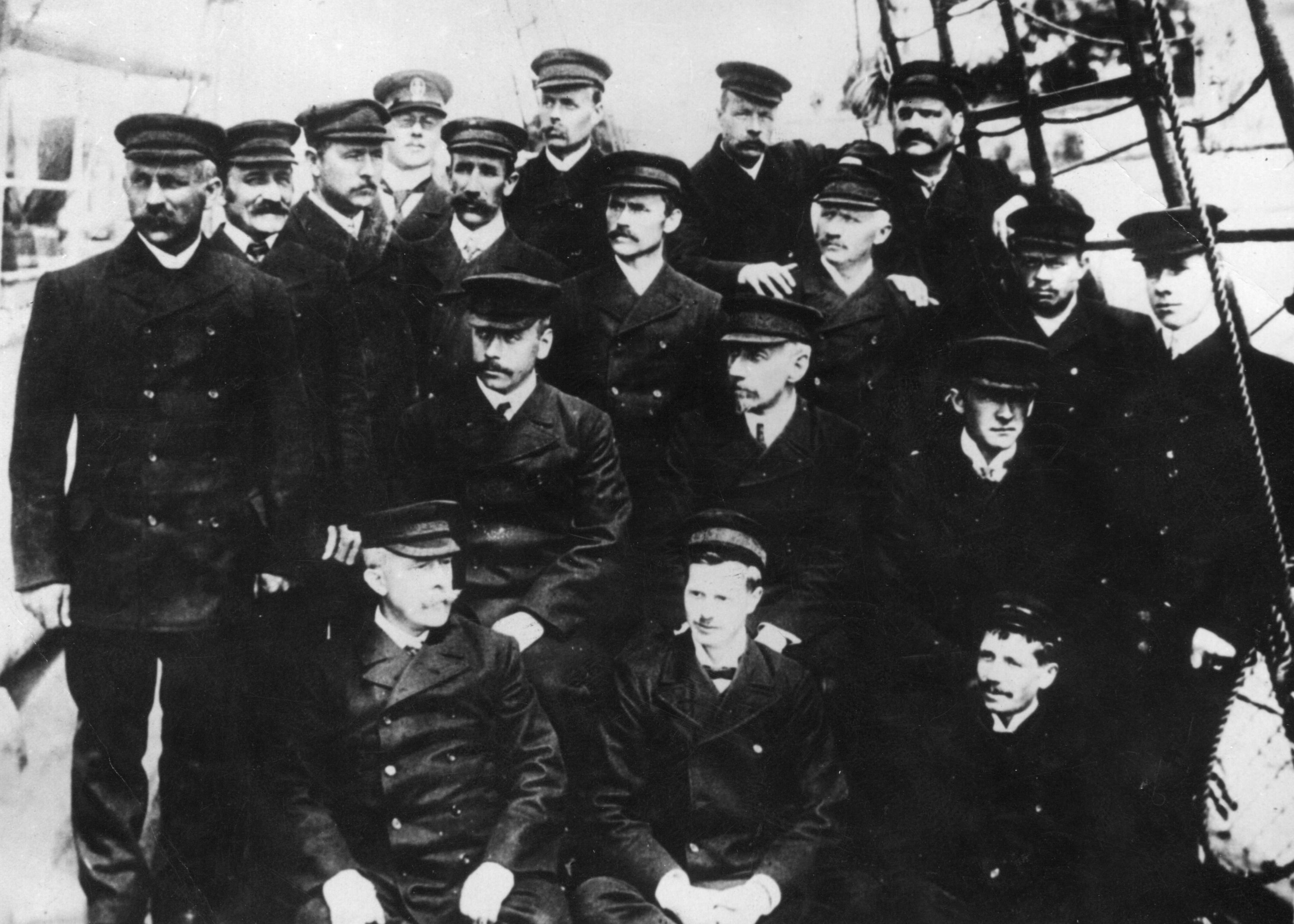
Norwegian explorer Roald Amundsen and members of his Antarctic expedition team. (Hulton Archive/Getty)
Amundsen died in 1928 at the age of 55 after disappearing in a likely plane crash during a rescue mission in the Arctic, according to History.com.
The permanent scientific base at the South Pole now bears the names of both Amundsen and Scott.
The base was established in October 1956, which was the first time humans set foot at the South Pole following the journeys of Amundsen and Scott. That expedition was led by the U.S. Navy.
